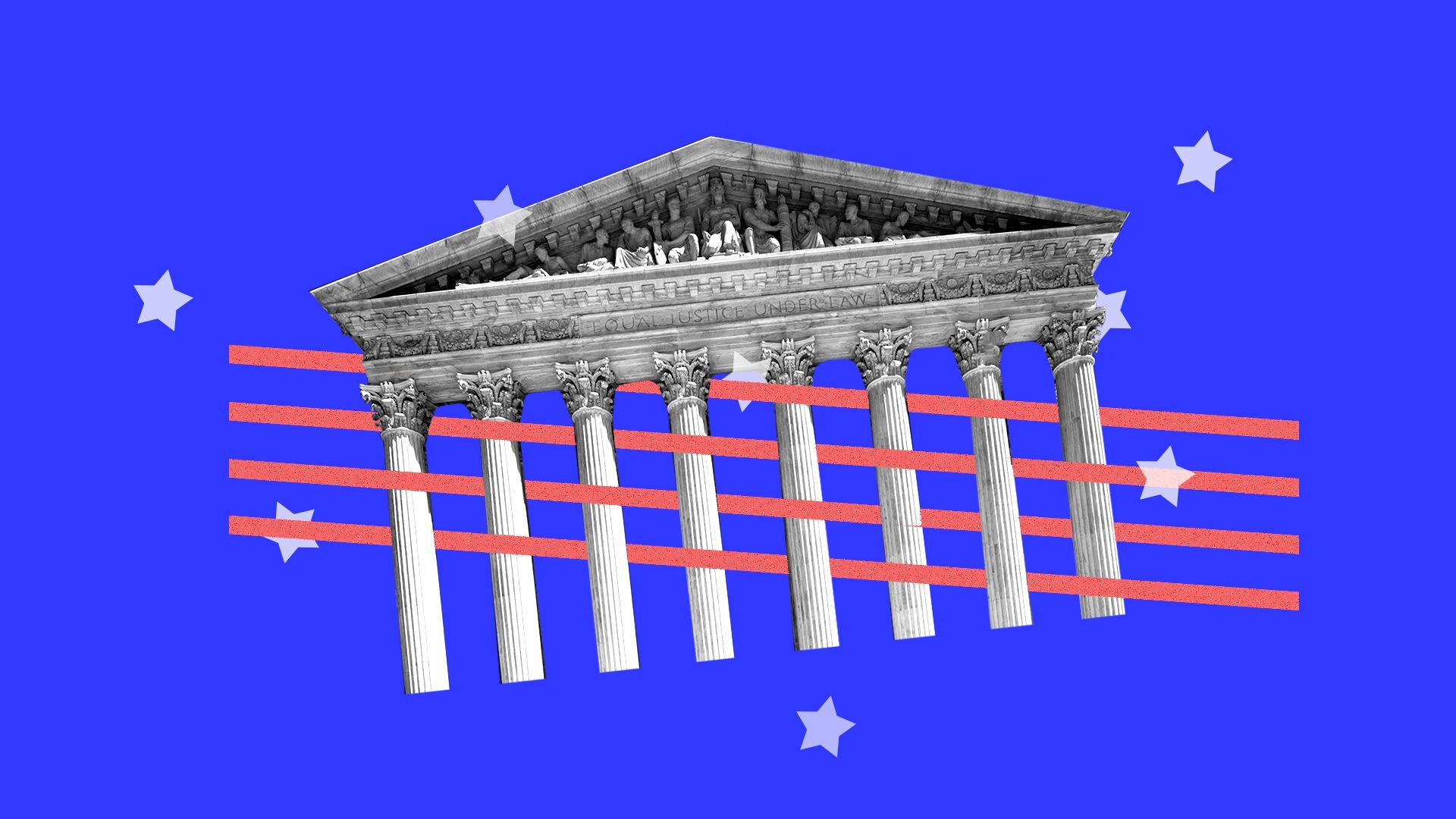Supreme Court will hear major voting rights case
Add Axios as your preferred source to
see more of our stories on Google.

Illustration: Rebecca Zisser/Axios
The Supreme Court agreed Friday to hear a major voting rights case, setting up a clash over states’ handling of absentee ballots.
Why it matters: The court has already invalidated a key section of the Voting Rights Act, even before President Trump solidified and expanded its conservative majority, and is now poised to limit voting-rights enforcement again.
- The justices will not hear this case until after the 2020 election, but its stakes for future elections are significant.
- The case concerns voting rules in Arizona. The state does not count votes that are cast in the wrong precinct, and it prohibits "ballot harvesting" — people collecting other people’s absentee ballots.
- The 9th Circuit Court of Appeals held that because Arizona’s rules crack down on practices that disproportionately benefit minority voters, they’re illegal.
What they’re saying: Critics say those two rules are unconstitutional and also a violation of the Voting Rights Act.
- Rejecting out-of-precinct ballots disadvantages people of color because their assigned polling places change more often, the Democratic National Committee said in a brief to the high court.
- And ballot collection efforts have increased turnout in heavily Hispanic areas.
The other side: Arizona says it has simply adopted race-neutral rules that apply equally to every voter and every part of the state.
- The Voting Rights Act prohibits states from erecting barriers based on race, the state argues, but that’s not the same thing as requiring states to adopt the voting laws that do the most to increase minority turnout.
- The 9th Circuit’s ruling, the state argues in a brief, "would imperil nearly every voting rule and practice in the nation, since one can always hypothesize other voting regimes that would increase minority turnout."
The bottom line: Chief Justice John Roberts and the court's conservative majority weakened the Voting Rights Act long before Trump was elected, and will likely continue to give states wide latitude over their voting laws.
